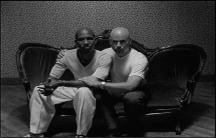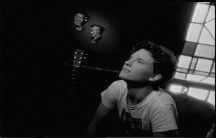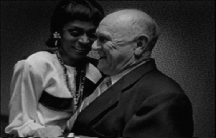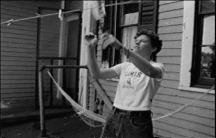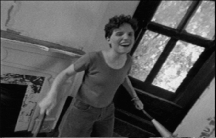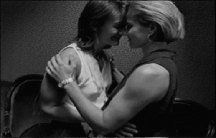
Music Matters Albums
Listen to samples of
music that matters.
Through iTunes
Through Amazon
Issue 15
Issue 16
Issue 17
Issue 18
Issue 19
Issue 20
Issue 21
Issue 22
Issue 23
Issue 24
Issue 25
Issue 26
Issue 27
Issue 28
Issue 29
Issue 30
![]()
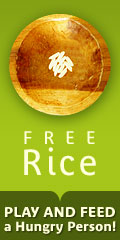

-
Catie Curtis
Interviewed by Frank Matheis
Catie Curtis' brilliant record Truth From Lies (Guardian, 1995) has elevated her in the ears and hearts of listeners and critics to the company of today's best and most exciting folk singers. She revealed to The Music Matters Review these insights, thoughts and experiences.
On what has most influenced her music:
When I was a kid we used to sing as a family. I owe my parents a great deal for that. Mostly, we did Broadway show tunes or stuff like Hank Williams or whatever was on the radio. We used to sing on long family car trips in many part harmonies. That's how I learned to sing. In our family singing was as important as talking. It was great...
On the impact of the success of Truth From Lies:
It's great to now be able to tour and to play with another musician, Jimmy Ryan, who plays mandolin and electric mandolin and brings so much to the shows. I feel that I am growing as a performer and as a musician. Also, more people come to my shows now. It's really nice for morale to have people in the seats and to get air play. I used to play shows with hardly anybody there. Guardian has been very supportive. We just made a video of "Radical" and I am very excited about how it turned out. Hopefully it will get some air play. In the past I've had to do all my own fundraising and it's nice to go into an album project with funding. You know it's a whole different thing. There are people who warned me about signing with a major label. They said I'd lose creative control and I understand that concern, but one of the things that has impacted my creative process in the past has been financial limitations-not being able to afford a band on the road or doing whatever I wanted in a studio. Now I may have to work as a team with the label, but there are a lot more options available to me. There is flexibility in having a whole team behind me.
On current projects:
I am presently working on new songs, as I will probably be recording a new album within the next few months. I don't know what producer I'll be working with or what musicians, but I'll probably include Jimmy Ryan on mandolin. I'm also trying to get better at performing at summer festivals-playing outdoors is a really different thing for someone like me who is used to playing at small, intimate settings of concert halls and coffeehouses.
On how she writes songs:
The best songs come pretty much as surprises, almost as gifts. They just start spilling out and I try to stay with them. A lot of times they are written in an hour. But then, that's a select few. The rest I sit with my guitar and play, and I have something on my mind that is bothering me or something to express. I just sit and play, singing nonsense words and playing chords until something clicks, until the lyrics can express what's on my mind. Sometimes I sing and don't even know what I want the song to be about, and something will pop out that resonates a recent concern, sadness or whatever. I don't feel very much in control of the process, it's more like a sense of receiving what's in the air at that moment when I am trying to play.
On who she likes to listen to most right now:
Right now I really like Gillian Welch. I also like Emmylou Harris's Wrecking Ball, Guy Clark and Lucinda Williams. In the CD player right now is Bonnie Raitt, Shawn Colvin, Ani DiFranco and Daniel Lanois.
On what she reads:
I enjoy reading magazines at airports-Atlantic Monthly, New Yorker. Right now I am reading a book on Buddhism (She laughs out loud). You have to include that I am laughing because I really don't have defined religious beliefs, I just like reading about other people's religion. I'm also re-reading a book about writing, "Writing Down The Bones," by Natalie Goldberg, because I'll be teaching a songwriting workshop in North Carolina. I read it five years ago.
On the media focus on the song "Radical," which deals with the issue of non-traditional relationships, and whether she is concerned about being typecast due to sexuality:
I knew when I wrote that song that people might have strong reactions to it. I didn't perform it for the first year. When I finally did, it got a much more positive reaction than I expected. A lot of people relate to it for different reasons-for being in any type of non-traditional relationship. It made me believe in the song as a piece I should perform, because it reached a lot of people who felt left out, somehow. That's what the video tries to do-it's about different couples, it's actually a tender and cute, sweet, sentimental kind of video, even though the idea is that these non-traditional couples can feel very much like the average couple. It's funny how you can come from a position of really just trying to say "I'm not trying to be rebellious or hip, I'm just trying to be who I am," and still there is a lot of fuss about it -because it is radical to be something that is different. I don't really feel concerned about being typecast because if people finally come around to listening to the album or if they come to a show and they hear "Everybody Is Dancing" or "The Wolf" or "My Dad's Yard," they will realize that I have other concerns, too. I think there is enough universality in my songs. People who generally feel drawn to my music will not keep me in that pigeonhole. People who never get that far, at least they will have heard of me.
On the "The Wolf," a song about child abuse:
I wrote it with a woman who works with kids, and I feel that it is drawn directly from an experience that one of the kids she works with had. When I play it, I can imagine being the kid, because I've been close to enough situations like it, where I can relate to it directly, even though it's not my own personal history. Then, after I play it, I find that it seems to resonate with people. I hope that in some ways it's helpful to people to hear it-to have it out there as one of the things that makes them feel that they are not alone in their experience. It makes other people aware that there are a lot of people trapped in that type of experience.
On being a national "folk star":
This spring Jimmy and I hit the road and played sixty dates all over the country, in small concert halls and clubs in every town, and doing really well by it. This is after five years of touring independently and now finally touring with radio promotion and label promotion. On a grassroots folk level I'm getting to the point where people are familiar with me. But, it definitely has not broken into a huge mainstream thing yet. You know, I've always looked up to people like John Gorka and Patty Larkin, and always have strived to be as committed to the music and playing to people who love music and who feel about the music as they do. I feel like I'm on the right path. I'm pretty happy about how things are going.
F R A M E
G R A B S
Frame Grabs Courtesy: Richard Einhorn's Circle R Studios
(Original video in color)
The "Radical" Video
